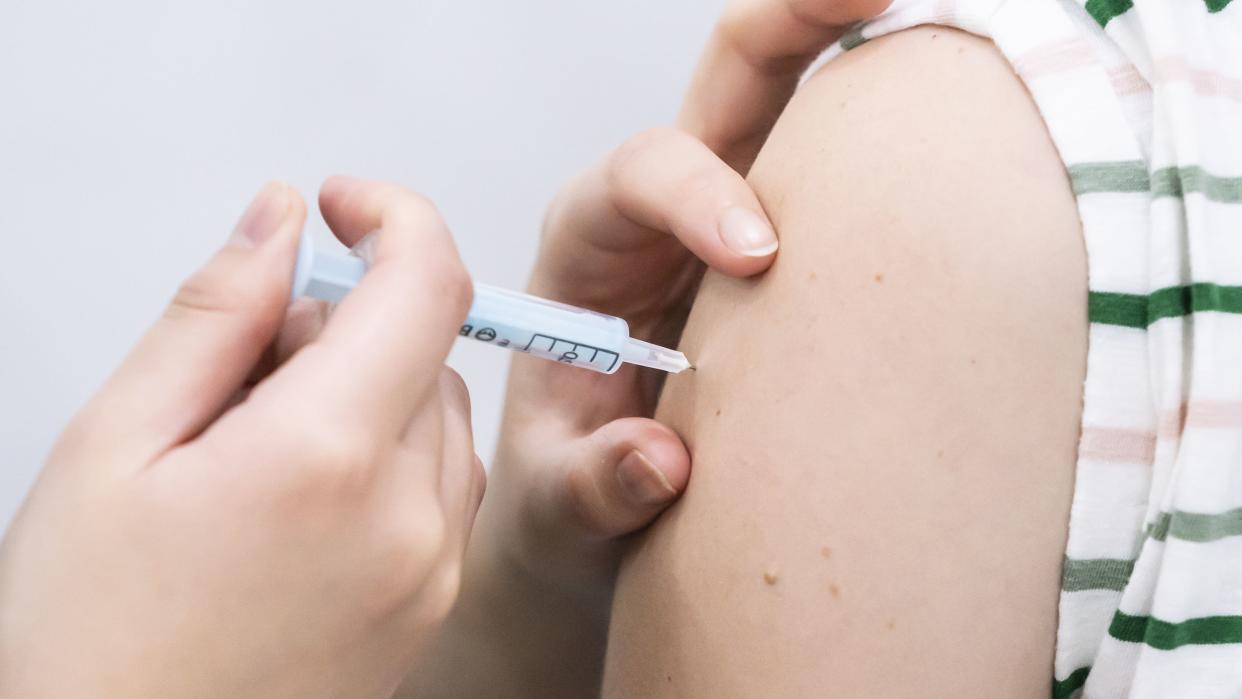Covid jabs ‘could have prevented 7,180 summer hospital admissions and deaths’

More than 7,000 hospital admissions and deaths in the UK could have been avoided in summer 2022 if people had had all their Covid jabs, a study suggests.
Experts found that between a third and a half of people had not had the recommended number of Covid vaccinations and boosters by June 1, 2022, equating to almost 27 million people in England alone.
The study, led by Health Data Research UK (HDR UK) and the University of Edinburgh, used anonymised health data for the population of 67 million people in all four nations of the UK.
People aged five and over were looked at, with under-vaccination defined as not having had all doses for which they were eligible.
As of June 1, 2022, some 45.7% of people in England were under-vaccinated, as were 49.8% of people in Northern Ireland, 34.2% in Scotland and 32.8% in Wales, the study found.
Researchers then used mathematical modelling to find that 7,180 hospitalisations and deaths out of 40,393 Covid hospital admissions and deaths from June 1 to September 30, 2022, might have been avoided if the UK population was fully vaccinated.
Of the 40,393 hospital admissions and deaths, some 14,156 were in people who were under-vaccinated. While all age groups were affected, the majority were older people.
The highest rates of under-vaccination were found in younger people, men, those in areas of higher deprivation, and people of non-white ethnicity.
The researchers found that uptake of vaccines was high for the first dose but got worse as more doses were offered.
The results of the study showed that, in comparison to people who were fully-vaccinated, people aged five to 15 who had not had all their jabs were over two times more at risk of death and hospital admission from Covid-19.
Those aged 16 to 74 were 50% more at risk, while adults aged 75 and over were over three times more at risk.
Professor Sir Aziz Sheikh, HDR UK research director and co-lead of the study, published in the The Lancet, said: “Large-scale data studies have been critical to pandemic management, allowing scientists to make policy-relevant findings at speed.

“Covid-19 vaccines save lives. As new variants emerge, this study will help to pinpoint groups of our society and areas of the country where public health campaigns should be focused and tailored for those communities.”
Researchers said the study – which is the largest of its type ever carried out in the UK – represents a landmark advance for science because it includes virtually everyone in the UK and unites NHS data which is stored and gathered differently depending on the country.
Experts now aim to extend this type of study to many other areas of medicine, such as cancer, diabetes, heart disease, respiratory diseases, screening programmes and other vaccinations, such as for respiratory syncytial virus (RSV).
Sir Aziz told a briefing: “There’s nowhere else in the world that can do this. This is a genuine landmark for the UK. We’ve got absolutely outstanding data assets… and brilliant analysts.”
Professor Cathie Sudlow, chief scientist at Health Data Research UK and director of the British Heart Foundation (BHF) Data Science Centre, said: “The landmark here is this brings data for the first time together from all four nations of the UK at whole population scale.”
She said the UK was uniquely placed to “realise the potential of these types of health data because of our NHS and its cradle-to-grave records from multiple different sources for our very, very large population of individuals across the four nations of the UK.”
She added: “We believe that we could and should extend these approaches to many other areas of medicine, such as cancer, heart disease and diabetes to search for better understanding, prevention and treatment of disease.”
Dr Jamie Lopez Bernal, consultant epidemiologist at the UK Health Security Agency, said protection from Covid jabs wears off over time so it is important to stay up to date with boosters if in an eligible group.
“The last day to get your Covid-19 vaccination for this winter season is 31st January,” he added.
“We’re encouraging those eligible to speak to their pharmacy or local GP as soon as possible to get booked in, which will ensure you have the best protection against the virus in the coming months.”

 Yahoo News
Yahoo News 
